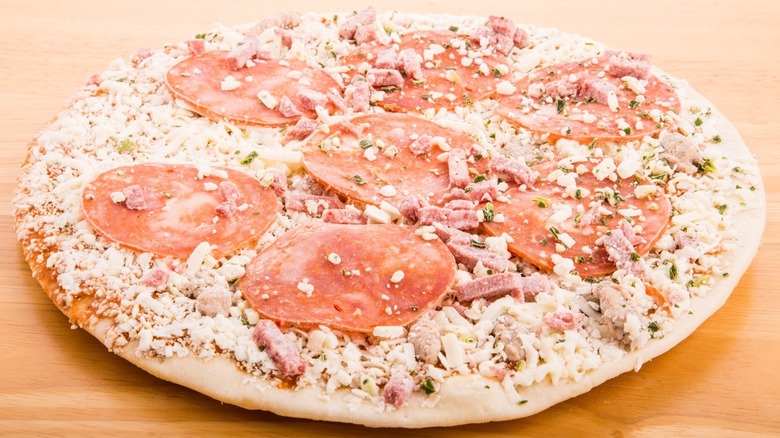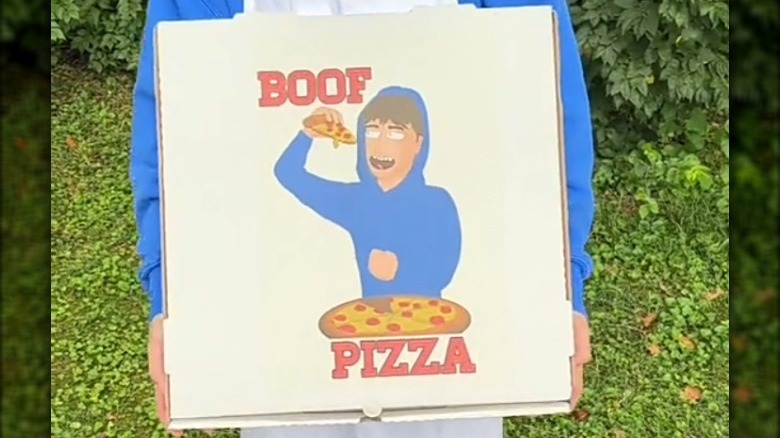TikTok Is In Shambles Over A Frozen Pizza Ghost Kitchen
As spooky as the name might suggest, ghost kitchens don't actually involve the culinary experiments of ghouls — although that concept could create an exceptionally interesting episode of "Scooby-Doo." In fact, the inside of a ghost kitchen isn't all that different from other kitchens you've been in before. According to Nation's Restaurant News, the chief difference is that ghost kitchens are housed in separate locations from established restaurants, using the same staff and facilities to produce meals (often for multiple brands).
Ghost kitchens are dedicated specifically to food delivery, so restaurant brands using them benefit from reduced staffing, equipment, and premises costs, explains NCR — a cost-effective way of entering the online food delivery market (valued at $23.4 billion in the U.S., reports Business Wire). However, NCR notes that one of the biggest issues facing restaurants using ghost kitchens is that food quality is outside their control.
This conundrum has been highlighted by a viral TikTok video claiming to show Walmart frozen pizzas being resold through DoorDash as "Boof Pizza." The video's uploader, Caden Boof, shares that he received five-star reviews for the endeavor, earning praise from TikTok viewers. In response, @hullsome exclaimed, "This man is living in the future," while others described the venture as "genius" and "next level." Although some TikTokkers believe the scheme to be legitimate, others aren't convinced. Fortunately, we can unmask the truth.
DoorDash says it's a prank
Plenty of viewers are questioning the Boof Pizza TikTok video, with many wondering if the exploits are legal, and one warning: "All fun and games until the health inspector shows up." Health is certainly one area of concern regarding ghost kitchens. According to FindLaw, ghost kitchens must meet FDA and local government hygiene regulations, but finding details of safety records and identifying who is specifically responsible for the kitchens in the event of legal disputes can be difficult.
Ghost kitchens might also create legal problems around brand legitimacy. JD Supra explains that businesses can use ghost companies to mimic well-known menu items or brands, potentially infringing intellectual property rights. Notably, Nation's Restaurant News reports that DoorDash makes clear when a company is a virtual restaurant, removes businesses using residential addresses, and insists on operations adhering to health and safety guidelines. Similarly, Grubhub scrutinizes images and descriptions of food options, verifies business details, and decrees that restaurants must have more than 15 menu items available.
As for Boof Pizza, DoorDash believes it to be nothing more than a "social media prank." In a statement released to Newsweek, DoorDash confirmed that Boof Pizza has never been active on the food delivery site.

